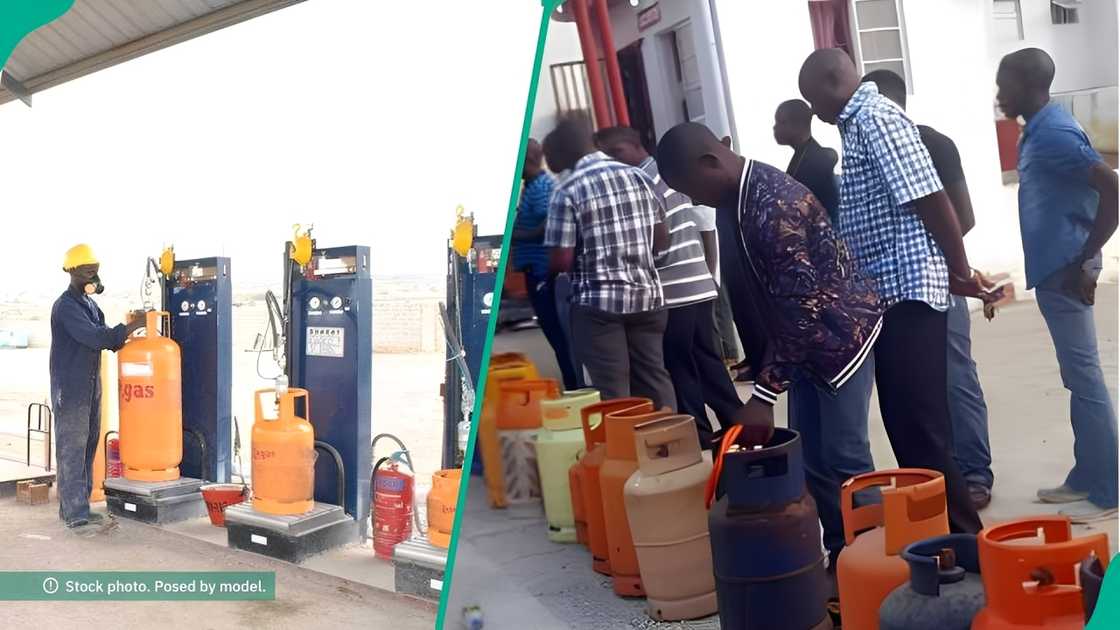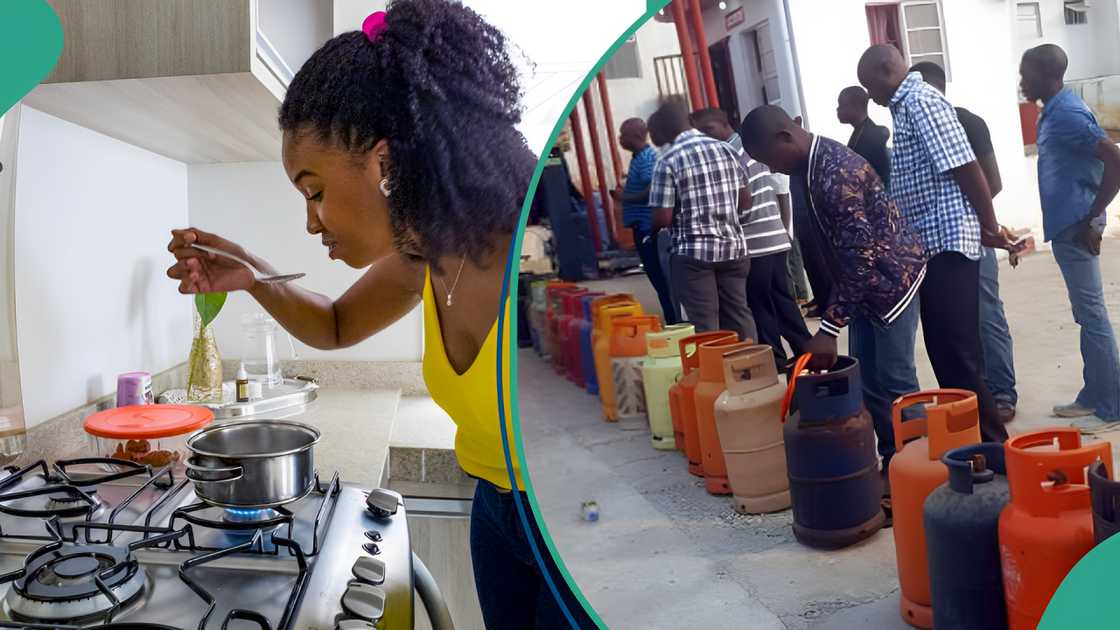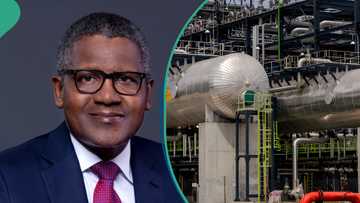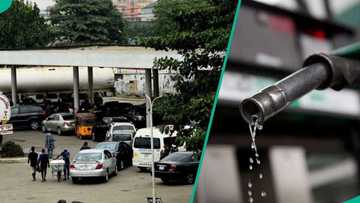Dealers, Retailers Announce New Cooking Gas Prices in Lagos, Abuja, Ogun, Other Cities
- The prices of liquefied petroleum gas (LPG) remained high across Nigeria despite assurances of relief from dealers
- Recent findings showed that dealers hiked the price of the commodity, blaming supply hiccups and logistics challenges
- Across major cities such as Lagos, Abuja, Ogun, and Port Harcourt, retail prices surged above N1,100 per kilogram
Pascal Oparada is a journalist with Legit.ng, covering technology, energy, stocks, investment, and the economy for over a decade.
Nigerians are facing another painful spike in the price of Liquefied Petroleum Gas (LPG), popularly known as cooking gas.
Across major cities such as Lagos, Abuja, Ogun, and Port Harcourt, retail prices have surged to between N1,300 and N2,000 per kilogram, deepening the cost-of-living crisis for millions of households.

Source: Getty Images
Consumers groan as cost rises
Marketers blame the increase on renewed supply disruptions and unresolved bottlenecks in the LPG distribution chain.
A few weeks ago, prices had dropped to around N1,000 per kilogram, but the relief was short-lived as rates climbed sharply again last week.
In Lagos, food vendors and households say the recurring price jumps are crippling.
“It’s frustrating,” said Modinat Lanre, a food seller in Ikeja. “I was paying N1,100 per kilogram just last month. Now it’s back to N1,300, and we can’t do without it. We just buy because our business depends on it.”
In Abuja, residents report similar experiences.
A resident of Lugbe said he paid N1,700 per kilogram over the weekend, while others in Durumi bought at N1,800 to N2,000. Prices in Ogun and Oyo have also crept up to between N1,400 and N1,600 per kilogram.
Port Harcourt residents face uneven rates, with some filling stations selling at N1,200 and roadside retailers charging as high as N1,600 per kilogram.
A resident, Jamiu Fasasi, who was shocked by the latest rate, lamented, “I bought it for N1,100 last Sunday. Why is it N1,300 now?”
Dangote Refinery, PENGASSAN dispute blamed
Industry sources point to lingering effects of an earlier standoff between the Petroleum and Natural Gas Senior Staff Association of Nigeria (PENGASSAN) and the Dangote Refinery.
At the height of the industrial dispute, LPG prices surged 80%, hitting N3,600 per kilogram in some locations, while scarcity reverberated nationwide.
Experts say the market has yet to recover from the effects of the dispute, as lingering logistics issues continue to disrupt supply.
The disruption slowed local supply, forcing prices upward.
A reseller in Lagos explained, “When Dangote stopped production briefly, we relied on imports, but prices rose. Even now, many are avoiding imports because of high international costs and fears of more losses.”
The Minister of State for Petroleum Resources (Gas), Ekperikpe Ekpo, confirmed that recent price spikes stemmed from both the PENGASSAN strike and ongoing maintenance at Nigeria LNG’s Train 4 facility.

Source: Getty Images
He, however, assured that operations have resumed at both Dangote Refinery and Nigeria LNG, promising improved supply soon.
Government moves to stabilise market
The federal government has directed the Nigerian Midstream and Downstream Petroleum Regulatory Authority (NMDPRA) to intensify depot monitoring and prevent hoarding.
Officials say domestic supply now takes priority over exports, though the LPG market remains deregulated, meaning prices fluctuate based on international trends.
According to a report by Leadership, Clement Isong, executive secretary of the Major Energy Marketers Association of Nigeria (MEMAN), noted that long-term stability depends on boosting local production and infrastructure.
He cited the government’s Decade of Gas initiative, aimed at expanding LPG availability and reducing import dependence.
Hope for relief, but not yet
Punch reports that despite assurances, many Nigerians remain skeptical that prices will drop soon. Retailers insist they can’t reduce prices until they receive new stock at lower costs.
“When supply from Dangote stabilises, we’ll sell cheaper,” said one dealer in Lagos.
Experts warn that without sustained investment in local production and distribution, cooking gas prices will remain volatile. Environmentalist Christian Chibuzor added that affordability is key to Nigeria’s clean energy transition.
“If LPG stays expensive, people will keep using firewood and charcoal. The government must make gas affordable to protect both people and the environment,” he said.
For now, Nigerians can only hope that promised supply improvements bring real relief before festive season demand drives prices even higher.
Dangote Refinery announces cheapest LPG rate nationwide

Read also
Relief for Nigerians as Dangote Refinery slashes petrol price to ₦828 per litre, marketers react
Legit.ng earlier reported that after weeks of scarcity and tension, the price of LPG also known as cooking gas reduced, thanks to Dangote Refinery.
Checks by Legit.ng on Thursday, October 16, 2025, showed that the price of the commodity crashed 80%, down from N3,600 per kilogram it sold two weeks ago to N1,050.
Dealers who spoke with Legit.ng attributed the price decrease to availability by the Dangote Refinery.
Proofreading by Funmilayo Aremu, copy editor at Legit.ng.
Source: Legit.ng




